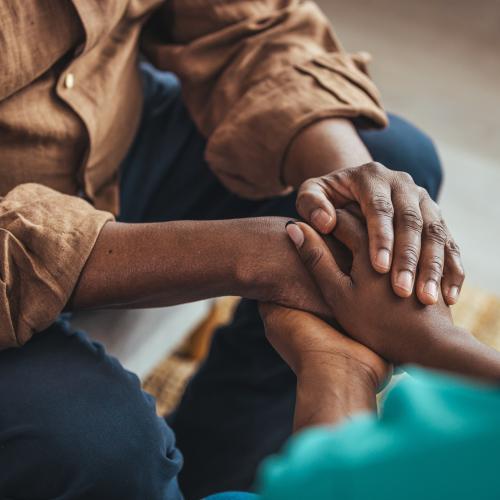Community Content
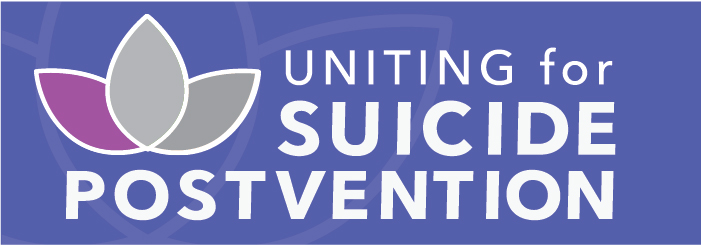 |
|||
 |
 |
 |
 |
|
Understanding Suicide Loss | Voices of Loss Survivors | Additional Resources |
|
UNDERSTANDING SUICIDE LOSS |
|
|
It is common for family members and friends to experience changes in their social, emotional, and physical functioning after the suicide death of someone they know. This USPV section provides an overview of the impact of suicide loss, common reactions during suicide-specific bereavement, and ways to support suicide loss survivors. |
|
After a Suicide Loss: Many Lives Touched |
||
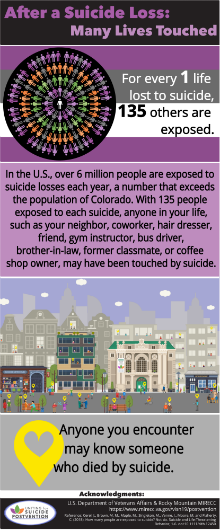 |
This infographic provides a visual representation of the expansive impact of suicide loss. Historically, it was believed that approximately six people were exposed to any given suicide loss. Now, we know that exposure to suicide loss is much more widespread as 135 people are touched by a single suicide (Cerel, 2018). This means that the impact of suicide loss extends beyond just close family members and friends—neighbors, coworkers, former classmates, and even your local coffee shop barista likely know someone who has died by suicide. |
|
Podcast: Postvention 101 |
|||
|
Check out the “Postvention 101” podcast to hear Dr. Jack Jordan lay a foundation for understanding what suicide postvention is, what it entails, who it is for, and why it is essential to a comprehensive suicide prevention plan. Jack Jordan, PhD is a clinical psychologist, grief therapist and published researcher in the field. |
|
||
Reactions to Suicide Loss: Common, but Unique |
||
|
For those who are experiencing grief following the suicide loss of someone they knew, common reactions to a suicide loss include feelings of sadness, disbelief, anger, guilt, and shock. However, everyone’s reaction is unique and can include any combination of these emotions—or perhaps none. See below for practical suggestions if you want to support someone who is experiencing a loss and don’t know where to start. |
||
Connecting with a Suicide Loss Survivor |
||
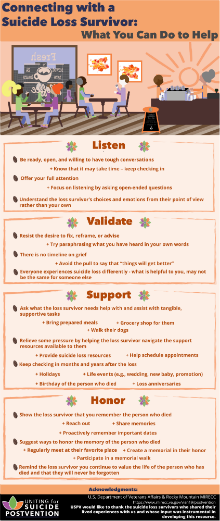 |
If someone you know has lost a loved one to suicide, it can be particularly difficult to know when and how to step in and help. This infographic provides practical suggestions on how to offer support to suicide loss survivors, including active listening techniques, validation, and ways to honor the person who died. It is designed so that you can select the options that work best based on unique situations and needs. |
|
Alliance of Hope |
||
 |
The Alliance of Hope was created by survivors for survivors and provides online healing support and other services for people who are coping with loss to suicide. The Alliance of Hope online forum operates like a 24/7 support group. In addition, the website contains support resources and information on the survivor experience. Visit allianceofhope.org to learn more and connect with other suicide loss survivors. |
|
Tragedy Assistance Program for Survivors (TAPS) |
||
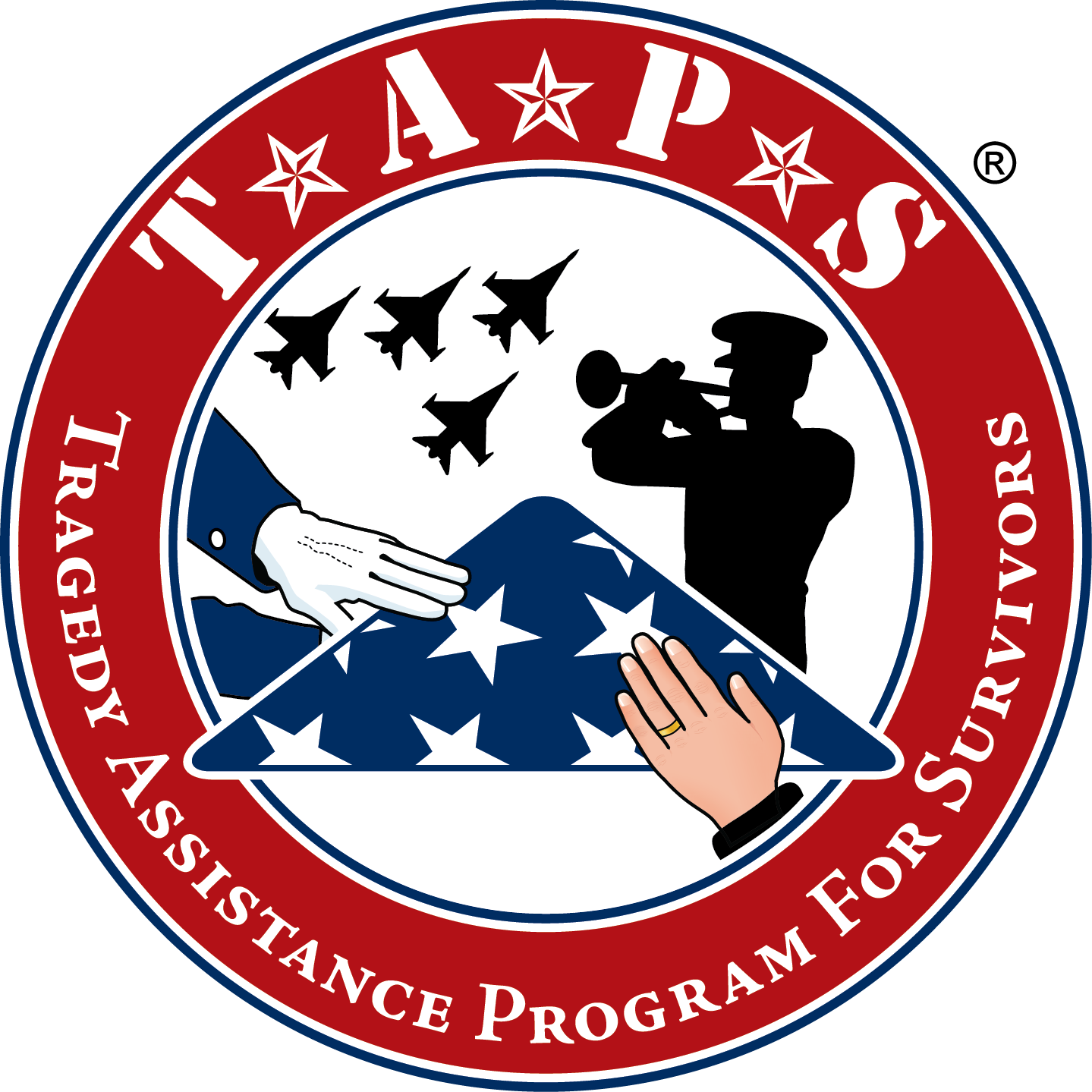 |
If you are a provider working with a Service Member, Veteran or family members who have experienced a suicide loss, please connect them to TAPS for resources and support. Loss survivors and providers can reach TAPS 24/7 at 800-959-TAPS (8277) or visit www.taps.org/suicide to learn more and get connected. |
|
VA Resources for Survivors of Suicide Loss
If you have lost a loved one to suicide, you are not alone. VA has help and resources: www.va.gov/survivingsuicideloss.
American Association of Suicidology (AAS) |
||
 |
The American Association of Suicidology (AAS) mission is to promote the understanding and prevention of suicide and support those who have been affected by it. |
|
|
USPV developed a postvention podcast series in collaboration with AAS. The series includes episodes for suicide loss survivors, workplaces touched by suicide loss, and medical and mental health providers. You can listen to the podcasts. |
||
VOICES OF OTHER LOSS SURVIVORS |
|
|
Losing someone in your life who died by suicide is a complex process that can involve unfamiliar emotions, thoughts, and behaviors, which may leave you feeling alone and disconnected from others. Hearing stories from other loss survivors can play an invaluable role in the healing process by helping you regain a sense of normalcy and connection after a profoundly painful event. In this section of USPV, several suicide loss survivors share their personal accounts of grief after losing someone to suicide. |
|
|
Alyssa T. Caselli-Allen, Staff Sergeant, USAF |
|
|
English with Audio Description | En Español | En Español con Descripción de Audio |
|
|
Jack Cohenour, SMSgt, USAF (Ret.) |
|
|
English with Audio Description | En Español | En Español con Descripción de Audio |
|
|
John Moran, UT3 (SCW), US Navy |
|
|
English with Audio Description | En Español | En Español con Descripción de Audio |
Podcast: Suicide Loss Experience |
|||
|
The time after losing a loved one to suicide can feel like being on a rollercoaster blindfolded. Check out the following podcast, featuring Dr. Nina Gutin, to hear more about the lived experiences of family members and friends after a suicide loss. Dr. Gutin highlights ways to seek, and provide, support for oneself or loved ones including children and adolescents. Dr. Nina Gutin is a suicide loss survivor, clinical psychologist, and pioneer in the field of suicide postvention. |
|
||
Blogs: Suicide Loss Experiences |
|||
|
Sibling Suicide Loss: Grieving Alone and Surviving Together - Written by Lena Heilmann |
|||
|
“In November 2012, I lost my sister Danielle to suicide. She had just turned 24; she would be turning 32 this year. As her older sister, I felt protective of her throughout her life and had to confront intense guilt and loneliness when she died…” |
|||
|
If you would like to share your journey processing and healing after suicide loss, please email SRMConsult@va.gov to learn how to do so. |
|||
ADDITIONAL RESOURCES |
|||||
Additional Postvention Readings & Podcasts |
|||||
|
Readings and Podcasts for Suicide Loss Survivors [temporarily unavailable] - by Uniting for Suicide Postvention (USPV) |
|||||
|
Workplace Suicide Postvention Podcast Series |
|||||
|
If you are interested in additional postvention podcasts, click here. These podcasts highlight the importance of postvention in every workplace, including schools, medical and mental health centers, general workplaces, crisis centers, and military settings. |
|||||
Connect with Suicide Loss Survivors |
|||||
|
American Foundation for Suicide Prevention (AFSP) Healing Conversations - connect (in person, by phone, or by video call) with experienced AFSP volunteers who are themselves suicide loss survivors |
American Foundation for Suicide Prevention (AFSP) Support Groups - search by zip code to find support groups near you |
||||
|
Friends for Survival - suicide loss survivor programs, events, and a comprehensive manual for starting suicide bereavement programs/groups |
Samaritans Hope - grief support services |
||||
|
Suicide Awareness Voices of Education (SAVE) - grief support and resources for suicide loss survivors |
|||||
Communities of Support |
|||||
|
Indian Health Service - Suicide Prevention and Care Program for American Indians and Alaska Natives |
|||||
|
Postvention Alliance - resources for suicide loss survivors and attempts |
|||||
|
LGBTQ+ Resources |
|||||
|
The Trevor Project - suicide prevention and postvention resources for the LGBTQ+ community |
|||||
|
Resources for Parent and Sibling Suicide Loss Survivors |
|||||
|
Resources for Children and Families |
|||||
|
Comfort Zone Camp - grief camp for children |
The Dougy Center - services for grieving children and families |
||||
|
Eluna Network’s Camp Erin - grief camp for children |
Friends for Survival - resources for children |
||||
|
Postvention Alliance - postvention resources for children and teens |
|||||
|
Talking to Children About Suicide Loss - by Together We Can (Department of Veterans Affairs) |
How to Talk to Children about a Suicide Attempt in your Family - by the Rocky Mountain MIRECC for Suicide Prevention (Department of Veterans Affairs) |
||||
|
If you are a medical or mental health provider who has lost someone to suicide (personally or professionally), check out the Providers section of USPV. |
If you are looking to start offering postvention in your workplace, check out the Workplace section of USPV. |
Updated 6 May 2025
| SITEMAP | ||||
| Home | About | Share | Resources | |
| Community | Contact Us | Promote USPV | Consultation | |
| Providers | USPV Staff | Logos & Graphics | References | |
| Workplace | Acknowledgements | USPV Products | TAPS | |
| RM MIRECC | FAQ | |||














